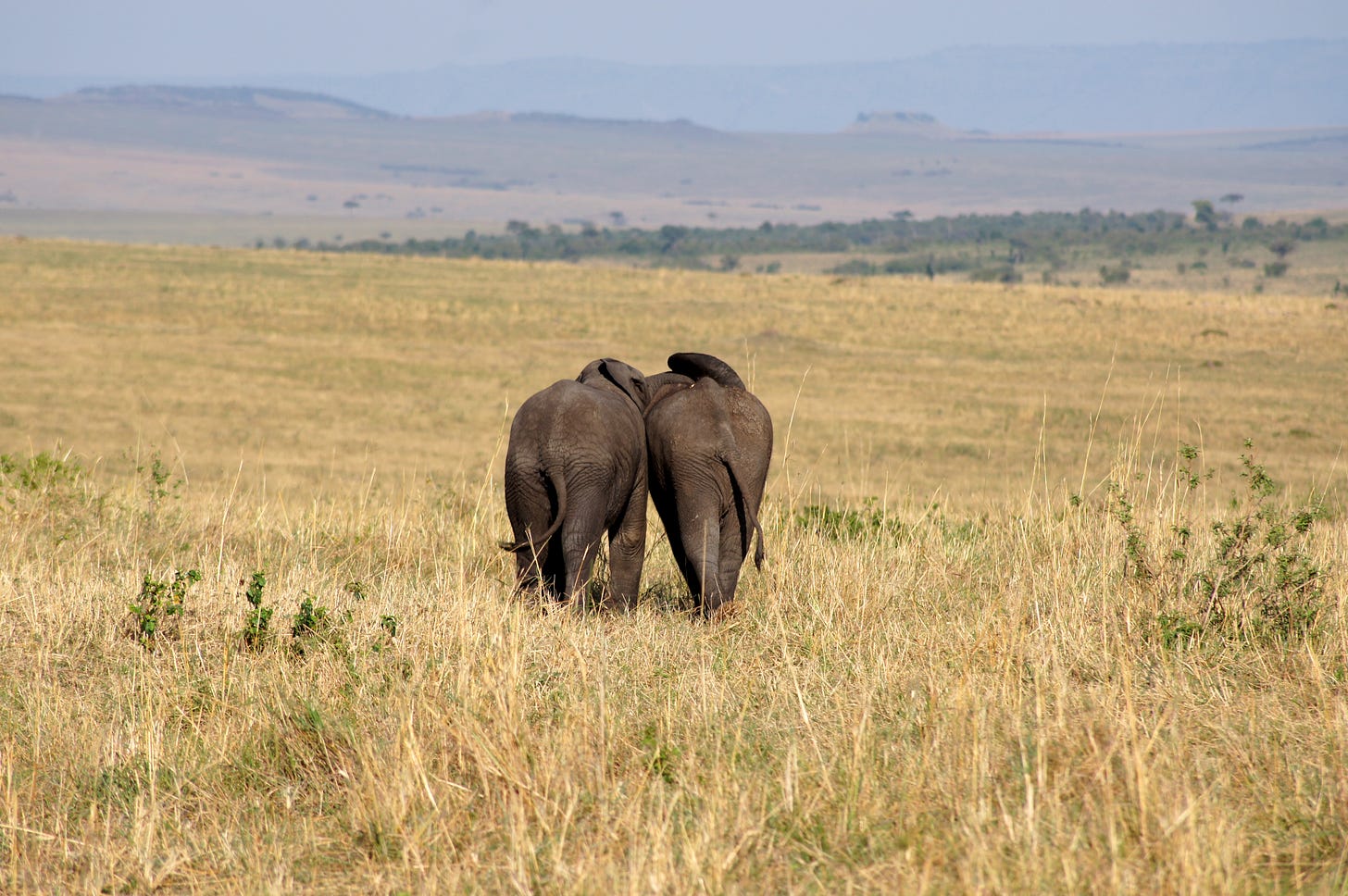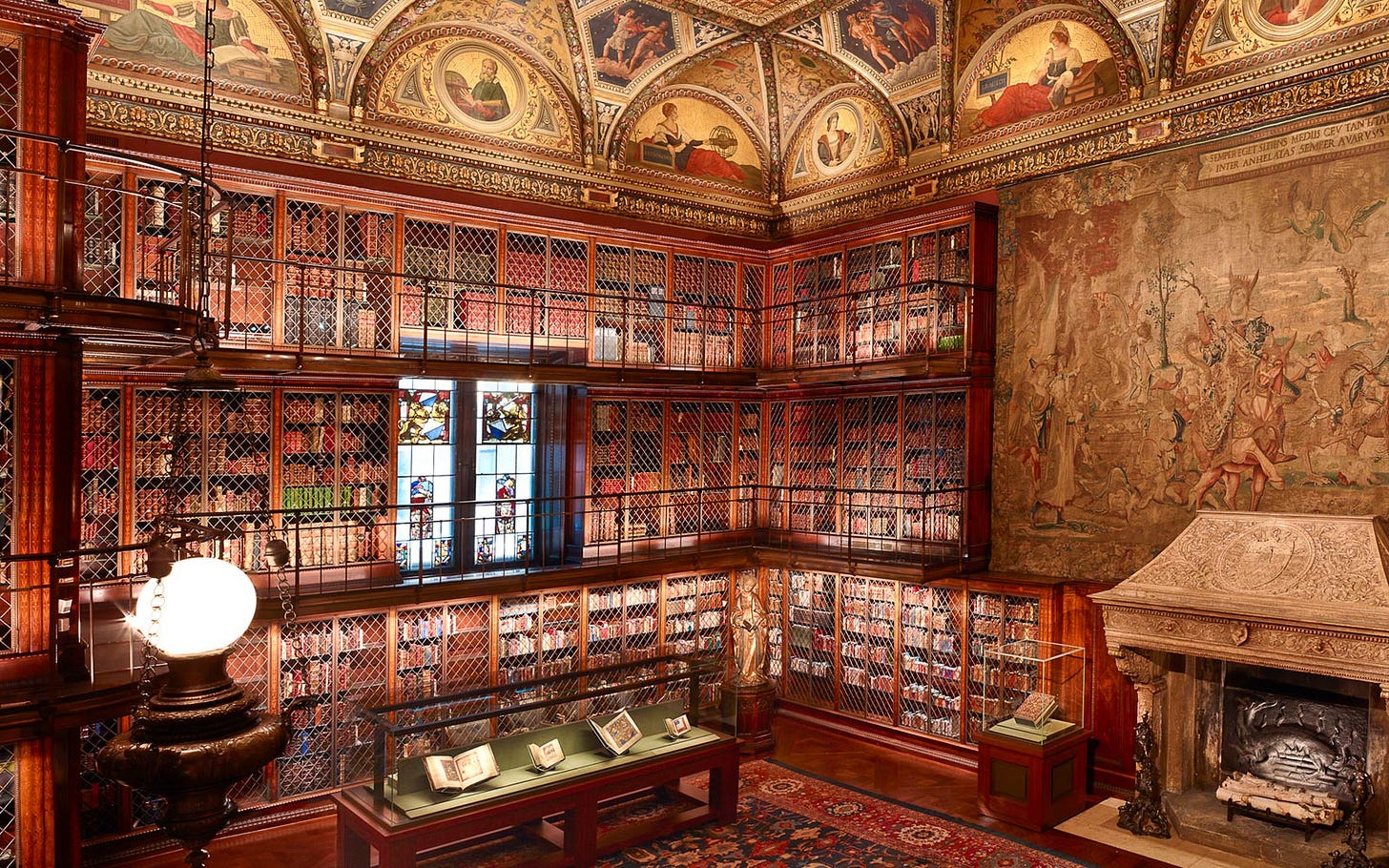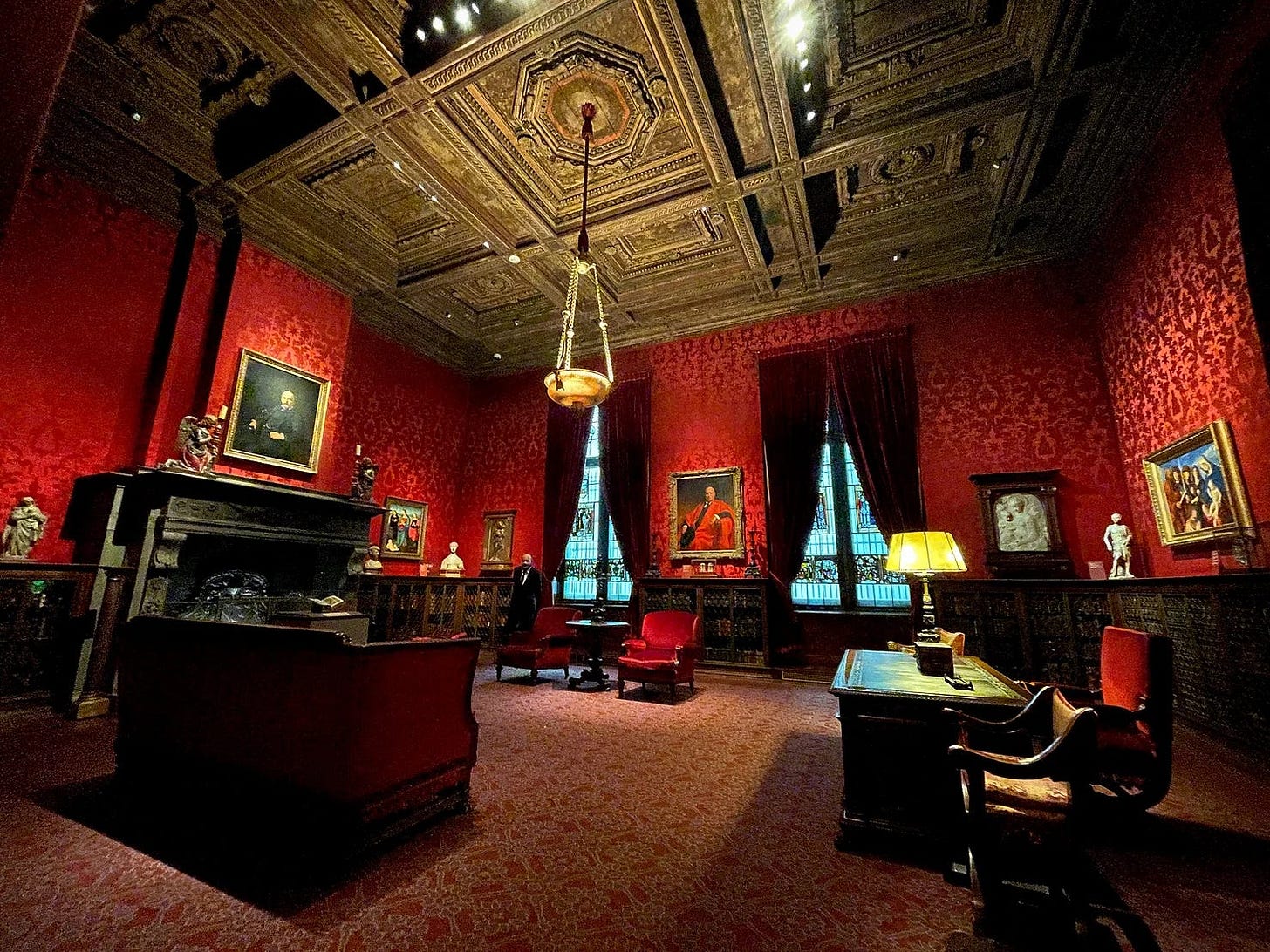In this roundup…
🤔 Is it possible to live without bias - or is “wasta” a basic necessity of life?
Keep reading (or scroll to each section) to learn more!
“To know that you can navigate the wilderness on your own - to know that you can stay true to your beliefs, trust yourself, and survive it - that is true belonging.” - Brené Brown
If you are a human in the 21st century, then you’ve probably heard the phrase “your network is your net worth”. Whether it was from a LinkedIn Lunatic or a motivational speaker, it is an unfortunate reality that the right connections can transform your life - and without them, it is much harder to succeed. Simply put, it’s good to have wasta.
Wasta is an Arabic word that epitomizes the power of one’s network. It’s hard to translate into English - it essentially means a combination of connections, nepotism, cronyism, favoritism, clout, and influence.
If you have wasta, you have more pull in various contexts, from getting tedious or inconvenient bureaucracy expedited, to being offered exceptional “mates rates”, gaining advantage in competitive situations, or getting special opportunities that might not have been available to you as easily - or at all - without it.
Unlike the pure “-isms” it can signify, wasta isn’t always judged as a negative form of privilege, because it exists on a spectrum. Whether or not it’s acceptable or obnoxious will depend on the context, the level used, and the intent behind it (from both sides).
In social circumstances, wasta is often addressed with a smile and a wink. Particularly in the Middle East, it is received as a cultural quirk - a positive way to show support and loyalty to your community. But wasta at work? It’s ok if the mutual relationships based on transparent factors, with opportunities supported by legitimate skills and experience, lead to benefits for the go-getters willing to put themselves out there. But the nepotistic kind can lead to decreased morale, a sense of unfairness, demotivation, and less productivity. There’s a fine line separating it, but to distinguish between ethical and toxic wasta, ask: Would the beneficiary still have what it takes if the provider hadn’t helped them out? Was the wasta simply a leg-up over the wall, or was it a discriminatory gilded elevator?
The concept of wasta happens all over the world. And in many industries, it’s an elephant in the room that shows up more often than many would like to admit.
🤔 The Perspective: Thoughts that make me go “hmm”
No matter how hard we try, it is impossible to avoid bias in some form, whether it’s conscious or unconscious. The herd mentality of human nature is part of our primal instinct. We’re hard-wired to support our pack - with an innate desire to protect our own kind. This might be those with your genes, of your own race, within your social circle, or the people you relate to the most. Status and preferential treatment are an unavoidable side-effect of in-group bias. Even if you start with a group of strangers, over time, bonds will form, and members of the in-group will be treated differently from those in the out-group. It’s part of why I don’t believe in utopia.

In the digital age, wasta is increasingly hard to avoid. It’s now easier than ever to apply for jobs online - but faced with an overwhelming pile of CVs, time-strained employers desperate to fill a role ASAP are more likely to look at the select few… especially when accompanied by a personal recommendation. Struggling to pick a restaurant or a dry cleaner? The one with the best reviews usually wins. Coveted gigs are typically offered to the one with the biggest (or most engaged) following. As the character Frank Lucas put it in American Gangster, “Either you’re somebody, or you’re nobody.” Due to the prevalence of social media’s performative nature - where those who fake it still seem to be more likely to make it, despite cries for authenticity - in the age of the influencer, having wasta is a form of modern Darwinism.
If that makes you cringe, I can relate. For many introverts, women, neurodivergent folks, people with imposter syndrome, or those of certain cultural backgrounds, self-promotion can feel especially hard. Maybe it’s because we’re conditioned to associate it with bragging, and therefore, shame. Maybe it’s because self-promotion is perceived and received differently for different types of people. Maybe it’s because we had more systemic or personal barriers to break in order to develop the confidence for building those valuable relationships. Maybe it’s because as someone who has been on the painful end of such bias in the past, to suddenly find yourself in a position with new privilege - or to even seek it - can feel unprincipled, immoral, and guilt-inducing.
Love it or hate it, our network matters - because even if you’re the most talented person out there, if nobody knows you exist, they won’t give you the opportunities you deserve. All we can do, then, is try to use our wasta responsibly from all sides. If you’re given privilege, don’t behave willfully blind to it - acknowledge it, and be gracious about it. And when that privilege enables you to give back to others who were once in your shoes, pay it forward.
🗺️ The Scene
I enjoy writing from different cafés, hotels, libraries, and workspaces around the world - and rating them for their “writer-friendliness”. The Clockhouse is a writers house for self-guided retreats, run by the Arvon Foundation - a UK-based charitable organisation that promotes creative writing. It offers uninterrupted time to write, with four apartments available to rent out in 4- or 6-day periods. Each apartment comes with a separate bedroom and writing study, and downstairs, there’s a library with a working log-burner fireplace. The house is surrounded by 26 acres of lush woodland, with incredible views of the Shropshire Hills. Everything is designed to make it as easy as possible for writers to get their work done - and that includes not having to think about food, since all of your meals are provided. Getting there wasn’t easy, since it’s quite remote and I travelled there from Dubai, but it was well worth it. It’s a truly dreamy place to stay, to nourish your writing, your mind, and your soul.
📍Shropshire, England, UK
⏰ Open year round. Four-day retreats are available from Thursdays to Mondays, and six-day retreats are available from Tuesdays to Mondays. If you book a consecutive 6-day retreat, you’ll get a 10% discount off the third and subsequent retreats.
🍴☕ Breakfast and lunch are a “help yourself” arrangement, with ingredients and tools to cook or prepare light meals with. For dinner, the freezer is stocked with tasty-locally-produced frozen meals (including vegetarian/vegan options, if requested) that you can heat and eat. There’s also a pub and shops in the nearby village of Clun.
💰 I paid £985 for a 6-night stay in the Wilfred Owen room, inclusive of meals
⭐ Writer-friendliness: 5 out of 5 stars
✈️ The Setting: Destinations to help your mind (and body) wander
The Morgan Library and Museum is one of the most beautiful libraries in New York City. Filled with old rare books and antiquities, it’s an incredibly beautiful setting crammed with history and mystique. Inside, you’ll find the former study and private collection of J. Pierpoint Morgan - yes, as in Wall Street’s J.P. Morgan.

The study was modelled on an old Roman villa that belonged to another banker, Agostino Chigi - who was the son of another prominent financier. Talk about OG nepo babies. Sort of funny, then, that J.P. Morgan was fined for a case involving nepotism in 2016.

The library’s incredible collection was curated by Belle da Costa Greene - a Black woman hired as Morgan’s private librarian, described in a 2024 article by Smithsonian magazine as “the true force behind New York’s iconic Morgan Library”. It contains a copy of the original Declaration of Independence, a handwritten score of Mozart’s Haffner Symphony, and the only extant partial manuscript of Paradise Lost.
Inside the library is a tapestry of The Triumph of Avarice. It’s the only surviving one in a seven-part series of the Seven Deadly Sins from the 1500s, once owned by King Henry VIII. The artwork is pretty fascinating, both in terms of skill and thematically. If you visit, look up - the story behind its lumettes (featuring muses, luminaries of the past, and the attributes associated with them), as well as the ceiling’s horoscope constellations, with personalised zodiacal sign placement, is equally interesting.
🙂 The Character: Inspiring people with a story worth telling
In 2016, I took part in a white collar boxing competition filmed for a local reality show. I didn’t care for the TV part - in fact, the producers thought I was so boring that in the 10-episode run, I barely appeared until the 8th episode. In my YOLO-fuelled youth, I philosophized that if one should “write what you know”, then how could I write more or better stories if I didn’t know anything? I figured the more life I lived, the better a storyteller (and human) I could become. This was a safe way to tick the “TV show” box off my bucket list, along with the “fought in a boxing ring” box at the same time. I justified it as the filming centered around boxing rather than drama (and the producers paid for my training, which would normally be very expensive). I also got to meet some interesting people.
Auditions involved grueling training sessions, and a trial round in the ring with no real idea what we were doing. I made it past the try-out rounds, onto one of three teams competing to participate in the grand finale fight night.
Hitting the gym at 5am daily before work, then again at 6:30pm afterwards, five days a week for months - with the hardcore fitness regime required for a fight sport (which is another mental game of its own), I bonded with some of these people in a profound way. One was a bartender/musician called Tumelo Khoza.
We’d never have met otherwise, but I’m so glad we did. A friendship forged with no social or professional agenda, through the years since, we’ve cheered each other on through various pursuits, however little or often we see each other. When my best friend died in 2020, Tumelo was an incredible support system - letting me talk about the person I lost as much as I needed to, cry when I needed to, and wordlessly fixing my balcony screen door after it been broken for months… so that amidst my grief, one thing in my life could feel healed and whole.
A bartender by night and a musician by day, Tumelo’s life has also had its fair share of ups and downs, but I remain inspired by his commitment to his craft. So I asked him about it! You can read the full interview here.
✍️ The Process: Insights on the craft of writing and editing
Finding a writing community can be key to succeeding in your author journey. Writing is a very solitary pursuit - most authors are introverts, and when so many of us have to write around our day jobs (and the rest of our lives), it can feel stressful to invest the time and energy into building a network when you could be using that time to put words down instead. But don’t write it off (pun intended) - it’s more important than we may realize, and it doesn’t have to be as stressful as we think either.
If you don’t like meeting in person, find an online community. If you like writing with others (like body doubling), find people who like that too. If you like to meet for social chats but prefer to write alone, tell people that. The ones who get it are your people. The ones offended by it? Not your people. Find a crew you can truly relate to.
The power of community is immense. A trusted group that we genuinely feel safe and comfortable with can hold us accountable, motivate us, help us push our limits, share collective wisdom, lend us some perspective, and believe in us when we can’t believe in ourselves. If someone needs a beta-reader or editor, you can help each other find one. They might find an agent that’s perfect for you, who you might not have seen - or vice versa. You’ll cheer each other on when you get book deals. They’ll understand you in a way few others can, and make you feel seen. They’ll help you realize you’re not crazy for thinking or doing certain things that are actually pretty normal for writers.
The community I gained from being an ELF Seddiqi First Chapter fellow is a treasure. The WhatsApp group of writers I met at the Emirates LitFest is a happy place I can access anytime, and their success brings me as much joy as my own. And my core group of writer besties? They are the lighthouse that keeps me from losing my way, no matter how stormy this journey can get at times.
🧠 The Idea-Sparkers, Thought-Stirrers, and Conversation-Starters
Scientists are trying to bring back the woolly mammoth. Um, did we not learn enough from Jurassic Park?
A company called Jetwind is trying to convert jet engine exhaust into a renewable energy source, with the eco-friendly electricity being used to power Texas’s Dallas International Airport in a (excuse the pun) pilot programme.
Wish you could check into The White Lotus? Now, you can - Four Seasons Hotels and Resorts have launched a holiday package themed around the HBO hit show, with 48 spots available for a 20-day journey across 8 properties around the world (flown to via the brand’s private jet), for a cool US$188,000 per person. At that price, those who can afford it should fit the financial profile of the average White Lotus guest, but let’s just hope there isn’t a murder waiting…
Thanks for reading!
Until next time,
Yi-Hwa







